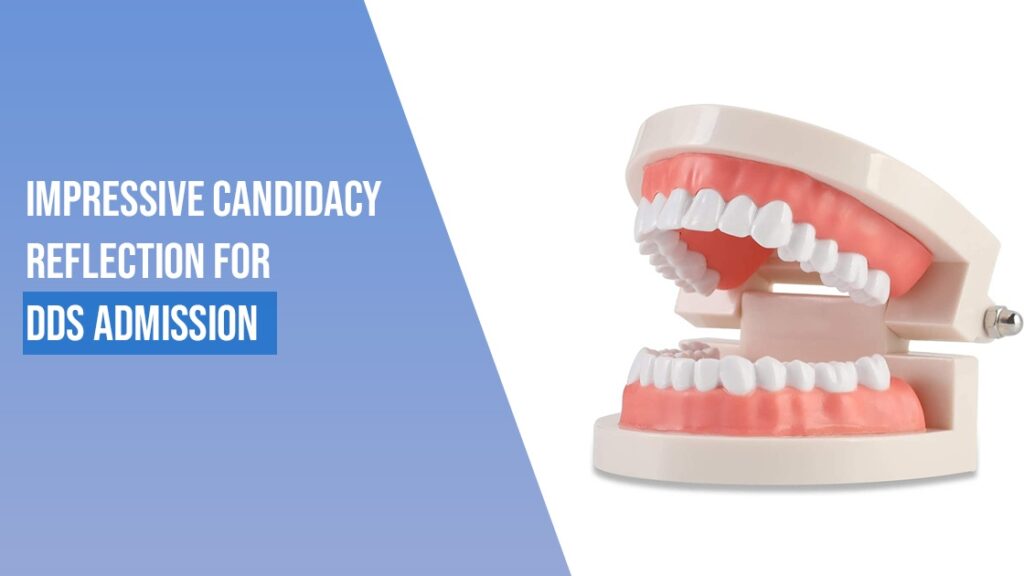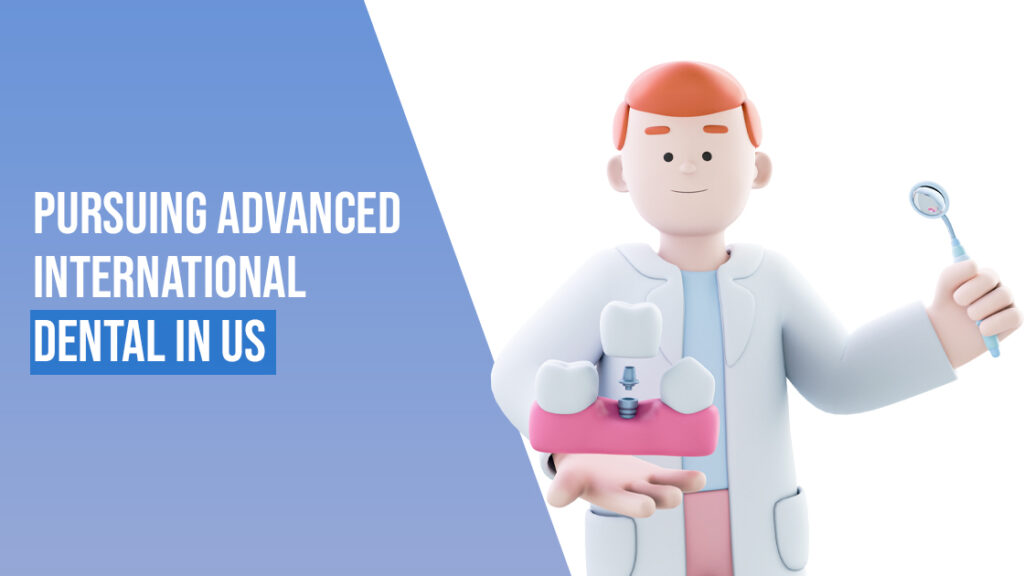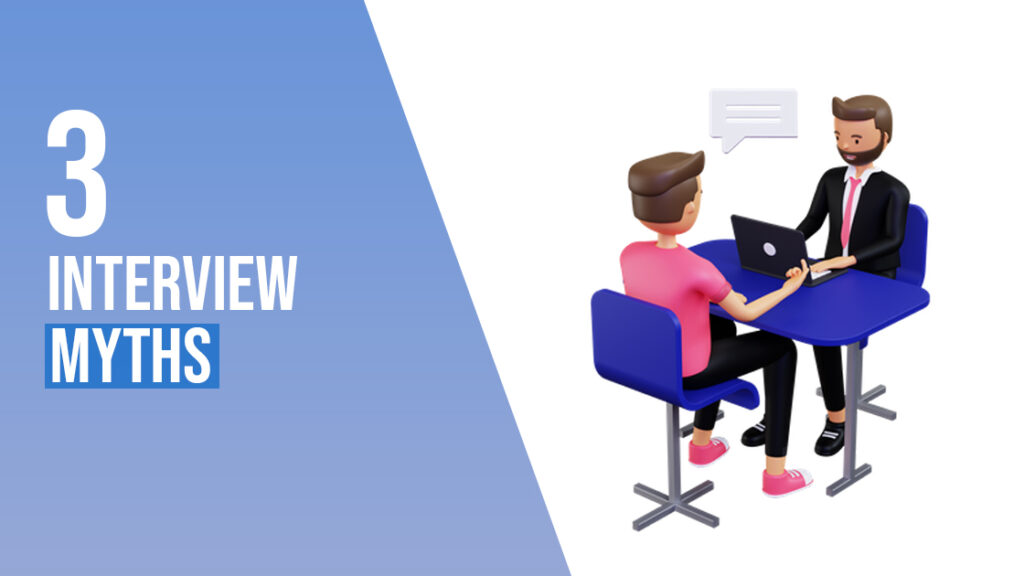Every dental school applicant realizes how important it is to showcase their community service experience when applying to US programs. We would like to use this article to demystify what you need to add to your profile to impact the minds of your admissions committee.
What is community service?
Community service refers to activities undertaken by individuals to benefit the community. It involves giving one’s time, skills, and effort to support and improve the well-being of others or to address various social, environmental, or humanitarian needs. It contributes positively to society and makes a difference in the lives of others.
Community service can take many forms, including but not limited to:
- Assisting in shelters, soup kitchens, or food banks to help people without a home and those in need.
- Participating in clean-up events, tree planting, or conservation projects to protect and preserve the environment.
- Tutoring or mentoring by providing academic support and guidance to students who may benefit from educational assistance.
- Offering healthcare support to aid patients or seniors, assisting in relief efforts during natural disasters or emergencies, and working on projects that enhance the community’s infrastructure, facilities, or public spaces.
What is volunteering?
You must have heard Sherry Anderson’s quote, “Volunteers are not paid; not because they are worthless, but because they are priceless.” You volunteer in community service to contribute to a cause that aligns with your values and interests.
Volunteering refers to offering your time, skills, and efforts to support a cause or community without being compelled to do so by any obligation. It is typically driven by altruism, compassion, and a desire to impact positively. It is a voluntary and often unpaid activity.
While the primary goal is to defend a cause, you benefit by acquiring new skills, forming connections, and experiencing personal growth. Volunteering can involve building long-term relationships with the organization or cause, leading to deeper connections and more sustained efforts.
Showcasing your community service experience in your dental application ONLY matters when you highlight the skills it teaches you.
What skills can be acquired through volunteering?
Community service can provide you with a wide range of valuable skills that extend beyond your specific tasks, benefitting your personal and professional life.
- Communication: Community service often involves interacting with diverse groups of people, including team members, community members, and beneficiaries. This helps you improve your verbal and written communication skills and your ability to listen and convey ideas effectively.
- Leadership: Engaging in community service can offer opportunities to take on leadership roles, whether organizing events, leading projects, or guiding other volunteers. You can develop leadership qualities like decision-making, delegation, and motivating others.
- Collaboration: Partnering with others on community projects enhances teamwork skills. You learn to work together, share responsibilities, and contribute your strengths to achieve common goals.
- Time Management: Balancing community service commitments with other responsibilities teaches you to manage your time effectively, prioritize tasks, and meet deadlines. You learn to manage resources, coordinate tasks, and ensure everything runs smoothly.
- Adaptability: Community service often involves working in dynamic environments where circumstances can change. This helps you become more adaptable and flexible in responding to new situations. Interacting with diverse groups in the community enhances your cultural awareness, empathy, and ability to relate to people from different backgrounds.

Overall, this experience underscored the significance of empathy, patience, adaptability, personalization, and open communication in creating a positive and productive experience for every young patient.
- Networking: Engaging in community service allows you to connect with people from various walks of life, expanding your social network and creating opportunities for personal and professional growth.
- Conflict Resolution: Conflicts can arise while working on community projects. Learning to manage and resolve disputes constructively helps you build stronger relationships and collaborate effectively. Community service often requires finding creative solutions with limited resources. Developing resourcefulness enhances your ability to achieve goals with available means. Addressing challenges and finding solutions is shared in community service. Developing problem-solving skills helps you tackle issues creatively and adapt to unexpected situations.
- Research Skills: You may need to gather information and data when organizing events or projects. Developing research skills allows you to make informed decisions and develop effective strategies. Attention to detail is crucial for planning and execution, helping you create a meticulous approach to task management.
These skills acquired through community service are valuable assets that can enhance your personal development, boost your resume, and contribute to your success in various academic, professional, and social contexts.
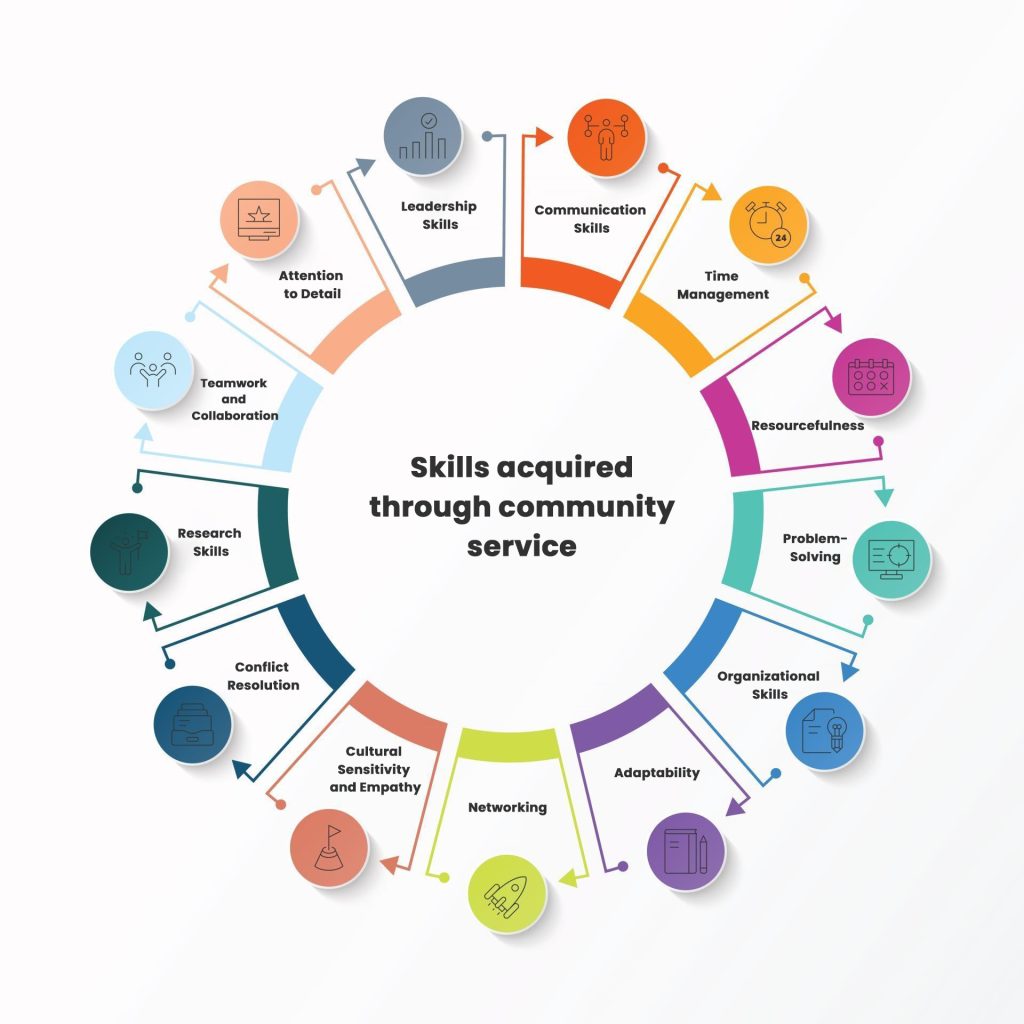
How does community service enhance your dental school learning experience?
Service-based learning positively impacts the attitude and profile of dental students toward understanding needs at the community level and providing dental care at the community level. Integrating academic learning with hands-on community service experiences is a valuable educational approach. It goes beyond traditional classroom education and allows students to apply their dental knowledge and skills in real-world settings while contributing to the community’s well-being.
Community service learning allows dental students to gain practical clinical experience outside the confines of the dental school clinic. They can work with underserved populations, including low-income individuals, children, and older people, providing basic dental care and oral health education. This exposure helps students develop their dental skills and enhances their ability to work in diverse and challenging environments.
Working with people of different religious and cultural backgrounds is essential for healthcare professionals to provide CLAS Culturally and Linguistically Appropriate Services(CLAS). These practices ultimately enhance health equality and positive outcomes and reduce healthcare disparities.
Community service learning experiences can provide valuable data for research projects on oral health and community outreach. You may participate in research-focused oral health facilities, care access, and community-based interventions.
You must be a well-rounded applicant participating in meaningful activities on your college campus and within your community.
Dentistry is a service-focused profession, and dental school admissions look for students who demonstrate their promise to serve the community throughout their lifetimes.
Where can I volunteer?
Volunteering is not confined to a specific space. It can be anything to help make a community bright and healthy and smiles last a lifetime. As a dental or community volunteer, you can work on maintaining good oral health habits in your community. Whether you’re giving a quick lesson in the classroom, giving checkups in the vans, or just talking with kids at a community event, you’ll have a chance to make a significant impact.
Volunteering in community service provides a powerful platform for you to make a tangible impact on the lives of those in need. It allows you to apply your dental knowledge and skills in real-world settings, honing your clinical expertise while working with diverse populations.
Beyond acquiring technical abilities, community service volunteering opens doors to personal growth and self-discovery. You will be able to foster empathy, gain cultural competence, and develop exceptional communication skills while collaborating with fellow dental students and other healthcare professionals.
Moreover, community service volunteering provides invaluable insights into the social determinants of oral health and the importance of equitable access to dental care. This experience often ignites a passion for advocacy and inspires many of our students to become advocates for positive change in oral healthcare.
As a CAAPID applicant, engaging in community service can enrich your dental school application, demonstrating your commitment to service and your desire to contribute meaningfully to the well-being of others. It showcases your dedication to making a difference in the world, qualities that are highly valued in our dental school community.
In the journey of community service, you will not only leave a lasting impact on the lives of others but also witness the transformation within yourself.
What are common community service options taken up by CAAPID applicants?
Nonprofit Organizations
Nonprofit organizations in the healthcare field, especially free or charitable clinics, rely significantly on help from volunteers. The National Association of Free and Charitable Clinics utilizes 200,000 volunteers per year. Healthcare students interested in volunteering through their website can find a clinic in their area to participate. Other nonprofit organizations, such as Project Sunshine, need volunteers of all types to help support their efforts in pediatric treatment facilities and other medical settings.
Missionary Trips Abroad
Students can enhance their global perspective on medicine, healthcare, and education by completing volunteer healthcare opportunities abroad. Many affordable healthcare programs overseas are designed to allow you to work alongside top l professionals. These programs place students at the frontline of programs that promote better health outcomes for populations abroad. These positions can be an excellent way for students to work with diverse patients and prepare them to be more culturally sensitive professionals.
Study abroad programs allow you to engage with a different patient population and work in a facility with access to further resources. Each study abroad position presents new challenges and enables healthcare volunteers to to obtain or sharpen a unique skill set.
Resources for Community Services in Healthcare
Various charitable organizations, colleges and universities, and worldwide institutions can connect you with valuable opportunities for community services in healthcare. Let us explore a brief list of well-known service organizations regularly taking on volunteers.
Specializing in disaster relief, the American Red Cross utilizes volunteers to help them deliver various vital services in moments of crisis.
The NIH comprises 27 institutes and centers dedicated to health-related research, especially infectious diseases. The organization receives funding from the United States government and offers a variety of valuable positions for healthcare volunteers.
The HRSA offers a Public Health student intern program for students starting a healthcare field. Students complete one semester rotations within one of HRSA’s offices or bureaus, such as the Bureau of Health Workforce, Office of Communications, Federal Office of Rural Health Policy, or Bureau of Primary Health Care.
US citizens can take advantage of volunteer opportunities with the Peace Corps. Healthcare-focused volunteers can find positions in their communities and promote essential health topics, including basic hygiene, water sanitation, and nutrition. Additionally, volunteers can work in HIV/AIDS education and prevention programs.
Healthcare-specific Community Programs
Healthcare volunteering will help you further comprehend the area that interests you in your specialization. The Association of American Medical Colleges (AAMC) offers supplemental advice for healthcare and dental students pursuing hospital volunteer opportunities.
Hospitals
Community services organized by Hospitals provide an excellent opportunity to create healthcare awareness, learn from established professionals, and gain hands-on experience. You can locate opportunities that you will enjoy and that will help them further understand the area of the field that interests them.
Clinics
Community programs offered by clinics are often smaller facilities and serve a smaller number of patients. This way, they may offer more intimate experiences for a student shadowing a healthcare professional. It also allows you to interact more directly with patients. These clinics may exist at your college, university, or nearby school.
Hospices
Hospices have a variety of volunteer roles to choose from, such as providing companionship to patients, assisting with administrative tasks, offering emotional support to families, running errands, helping with fundraising events, and more. You can select a role that aligns with your skills, interests, and the time you can commit.
Please take a look at the time commitment you can offer. Some roles require more consistent hours, while others provide more flexibility. Be clear about your availability and how often you can volunteer. Engage with patients, families, and the hospice team with compassion, empathy, and a willingness to provide support.
Remember, hospice volunteering can be emotionally demanding, as you’ll work with individuals facing severe illnesses and their families. It’s essential to approach the role with sensitivity and empathy.
Rehabilitation centres
Rehabilitation centers (rehabs) can be a meaningful and impactful way to support individuals recovering from various challenges such as substance abuse, mental health issues, or physical injuries. The specific roles in rehab can vary based on the facility’s focus and the needs of the individuals they serve.
Blood Drives
Volunteering at blood banks, for instance, with the American Red Cross is a crucial and impactful way to contribute to public health and save lives. Blood banks are critical in collecting, testing, and distributing blood products to hospitals and medical facilities for needy patients.
Dental Drives
Mission of Mercy
“Mission of Mercy” provides underserved and uninsured individuals free medical and dental care. They operate through volunteer efforts and deliver essential healthcare services to those in need. You can serve the community at a Mission of Mercy venture.
As a dentist, you can offer patients oral health care such as examination, fillings, extractions, scaling, and primary dental care. Notably, you can create awareness of the significance of oral health.
Each Mission of Mercy clinic may have its own set of roles and requirements for volunteers. Suppose you’re interested in volunteering at a specific Mission of Mercy organization. You can contact them directly through their website or contact information to inquire about the opportunities and how you can get involved.
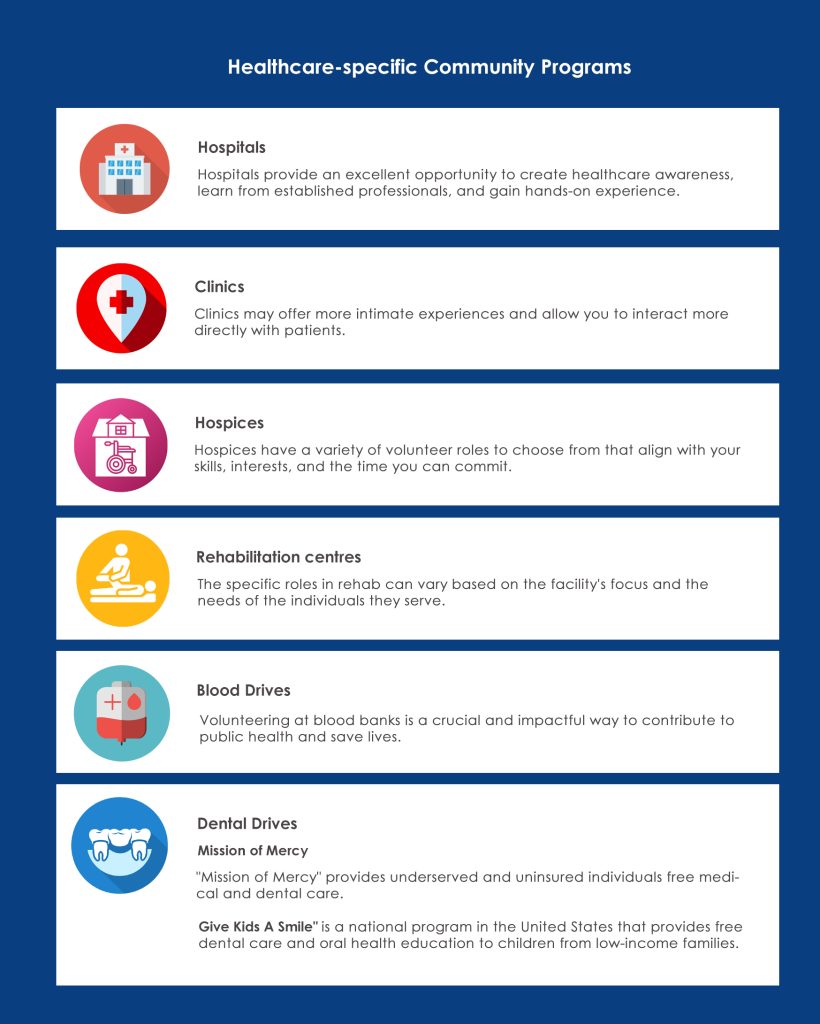
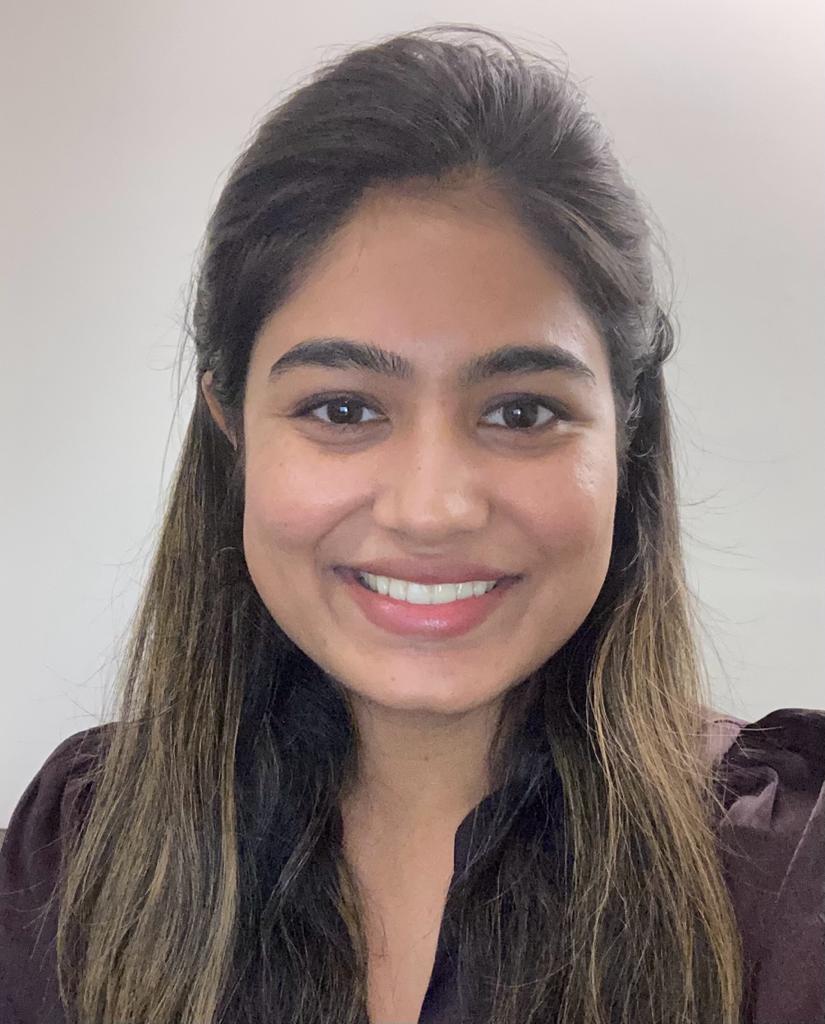
Give Kids A Smile is a national program in the United States that provides free dental care and oral health education to children from low-income families who may not have access to regular dental services. Local dental professionals, community organizations, and volunteers typically coordinate the program. Here are some typical roles that volunteers might take on in the “Give Kids A Smile” program:
Similar spaces include Mobile clinics, Mission trips, Autism Speaks, and more.
Non-healthcare specific volunteering
Food banks
Offering services at food banks is a valuable way to support individuals and families facing food insecurity. It’s important to note that food banks may have specific requirements and protocols for you while volunteering, especially when handling food items and interacting with clients.
Volunteers may assist with delivering food in person to homebound individuals who need access to the food bank. This service is vital for elderly or disabled individuals.
Soup Kitchens
Volunteering at soup kitchens is a meaningful way to help address food insecurity and support individuals facing homelessness or financial challenges. Some typical roles that volunteers might take on in soup kitchens include meal preparation, serving food, dining room assistance, food distribution, and much more.
Tutoring
Volunteering as a tutor is a valuable way to help individuals, often students, improve their academic skills and achieve their educational goals. One-on-one tutoring, group tutoring, test preparation, reading support, special needs tutoring, and more. Big Brothers and Big sisters of America is one such entity.
Cradles to Crayons
Cradles to Crayons is an entity that fights clothing insecurity. They provide essential items like clothing, shoes, school supplies, and toys to children from low-income and homeless families. The organization’s mission is to ensure that children have the necessary items to thrive, learn, and play. Volunteers play a critical role in helping Cradles to Crayons achieve its mission.
Umbrella NGOs
Boston Cares and New York Cares connect you with various community service opportunities. The organization collaborates with multiple nonprofits, schools, and community organizations to address education, hunger, homelessness, and environmental conservation needs. Volunteers contribute to building a stronger and more compassionate community.
Volunteer Match offers an easy-to-use search engine and helps volunteers and recruiters find the best fit for their needs nearby.
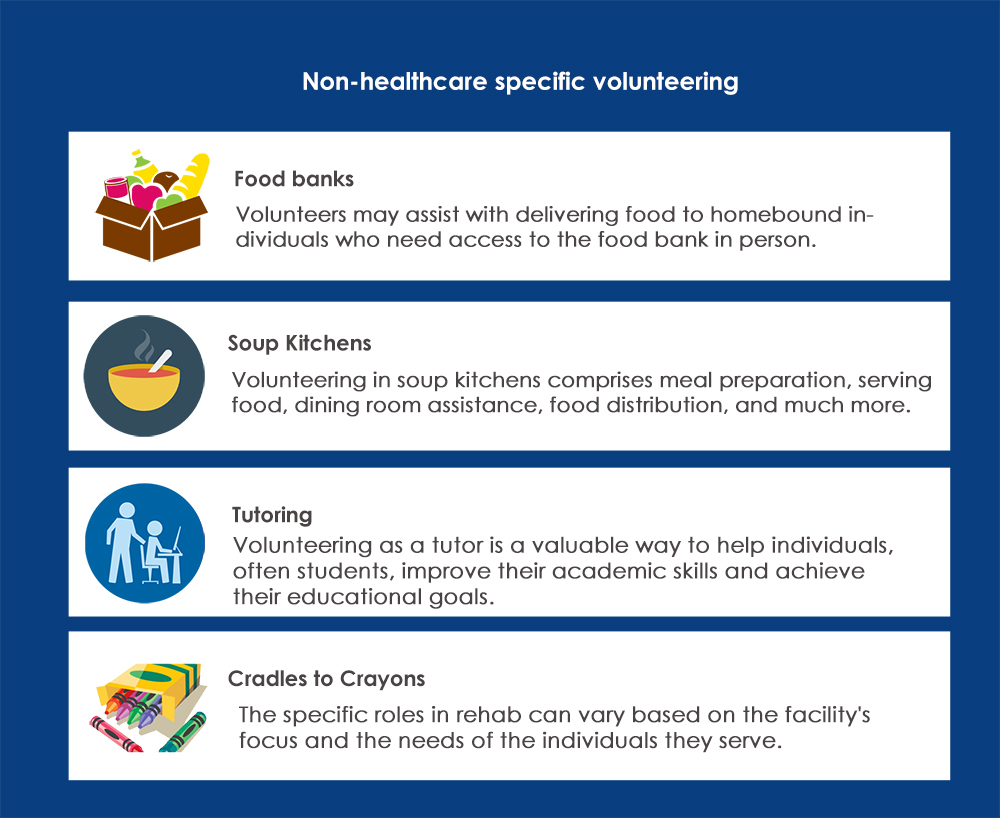
Tenure of Volunteering in Community Service
Ideally, 300 hours/ 10 to 15 hours a month, but it can be considered on a case-by-case basis. It is not a deal breaker if you have less than 300 hours of volunteering experience.
Quality over Quantity reflects your long-term commitment in one place instead of acquiring a few hours at multiple locations.
How do I write about community service experiences in dental school application essays and supplemental answers?
Reflecting on your community service experiences in your personal statement and interviews is a powerful way to showcase your commitment, values, and impact on your community.
Here are some tips to effectively convey your volunteering experiences:
Personal statements are relevant to the program or position you’re applying for. Focus on those that align with your requirements.
- Choose Relevant Experiences: Select a few significant community service experiences with the skills, values, and qualities the program or position values.
- Highlight Impact: Describe your specific impact while volunteering in community service. Use concrete examples to demonstrate how your actions positively affected individuals, communities, or organizations.
- Share Lessons Learned: Reflect on the lessons or insights you gained from your volunteering experiences. Explain how these lessons have shaped your perspective, values, and aspirations. Discuss your impact on others and what you learned from the experience. Describe any personal growth and challenges and how you overcame them.
- Connect to Your Goals: Discuss how your volunteering experiences have influenced your academic and career goals. Explain how your experiences have prepared you for the program or position you’re applying for.
- Show Growth: Describe how your experiences in community services have contributed to your personal and professional growth. Share instances where you stepped out of your comfort zone or overcame challenges.
- Demonstrate Transferable Skills: Highlight the skills you developed through volunteering, such as communication, teamwork, leadership, and problem-solving. Discuss how these skills apply to the program.
- Use Specific Details: Provide vivid and specific details to make your experiences come to life. Describe the settings, individuals you interacted with, and memorable moments.
- Prepare Specific Stories: Be ready to share specific stories that illustrate your volunteering experiences. Focus on stories that showcase your dedication, empathy, and impact.
- Connect to Program/Position: Relate your volunteering experiences to the program or position you’re interviewing for. Explain how your experiences align with the values and goals of the program or organization.
- Highlight Collaboration: Discuss your ability to work collaboratively with diverse groups of people, as this is often a valuable skill in both academic and professional settings.
- Discuss Challenges: If you encountered challenges while volunteering, don’t hesitate to share them. Discuss how you addressed these challenges and what you learned from them.
- Express Passion: Convey your enthusiasm and passion for your supported causes. Passionate individuals often make a lasting impact and are highly sought after.
- Ask Thoughtful Questions: Towards the end of the interview, ask about the organization’s or program’s approach to community engagement or volunteerism. This shows your continued interest in making a positive impact.
Remember, authenticity is critical in both your statements and interviews. Be genuine in your reflections, and use your experiences to showcase your values, strengths, and potential contributions to the program or organization.
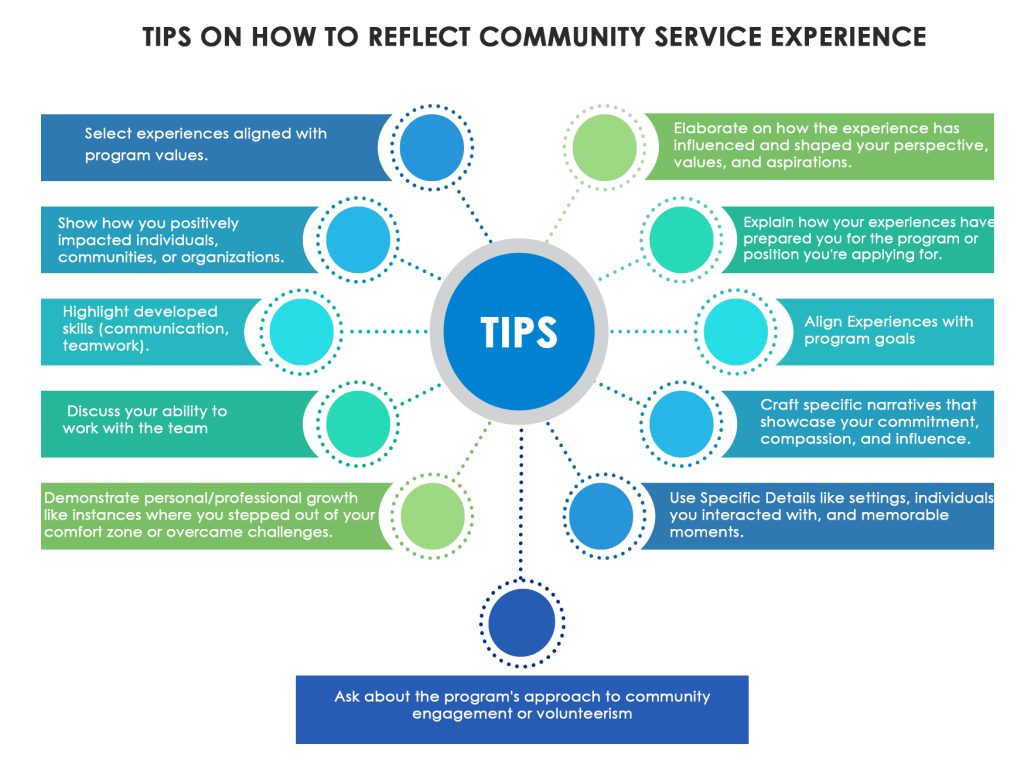
Bottom Line
Community service is more than just the hours that you offer. It adds to your credentials based on the acts you performed by someone to help or bring benefits to their community. However, community service is a vital force to many communities since they depend on the service made by the volunteers.
Overall, community service learning offers dental students a transformative educational experience, preparing them to be well-rounded, socially conscious, and skilled professionals capable of positively impacting the oral health and well-being of the communities they serve.
Authentic learning extends far beyond the confines of the classroom. Our commitment to community service is deeply rooted in our mission to produce exceptional dental professionals and compassionate and socially responsible individuals.
It is recommended that you embrace this opportunity wholeheartedly, as it will undoubtedly shape your path as a future dental professional, making a difference and leaving a legacy of compassion, care, and community service that will resonate throughout your dental career and beyond.
FAQs
How does Community service differ from volunteering?
“Community service” and “volunteering” are related concepts that involve individuals contributing their time and steps to help others and enhance their communities. While they are often used interchangeably, there can be subtle differences between the two terms:
Community service refers to activities you perform to benefit your local community or society. Additionally, it can be taken up as part of a legal obligation such as court-mandated community service or as a requirement for fulfilling specific educational or organizational goals, as in for CAAPID. Community service may or may not involve unpaid work. It can also be undertaken voluntarily as a way to give back and make a positive impact on the community.
Is it compulsory to volunteer at a dental/healthcare-specific organization?
No, volunteering at a dental or healthcare-specific organization is not compulsory. While volunteering in such organizations can provide valuable insights and experiences related to your field of interest, various ways to gain relevant experience and skills can contribute to your healthcare career, even if you choose to volunteer in other settings.
Ultimately, the decision to volunteer at a healthcare-specific organization or elsewhere should be based on your interests, goals, and experiences you want to gain. What matters most is your commitment to making a positive impact and your willingness to learn and grow from your chosen experiences.
How many hours of experience do I need?
It’s great if you’re open to obtaining the full 300-hour mark, as this can accommodate a broader range of varying levels of prior experience.
This approach recognizes that the quality and impact of the volunteering experience are just as crucial as the quantity of hours spent. It also acknowledges that applicants might have other responsibilities, such as work, studies, or family commitments, influencing their ability to volunteer extensively.
Is there any school that mandates volunteering as an application requisite?
Though it is not a mandatory requirement in the application, good GPA scores is not enough to get you into dental school. You must be a well-rounded applicant participating in meaningful activities on your college campus and within your community. Dentistry is a service-focused profession, and dental school admissions officers look for students who demonstrate their promise to serve the community throughout their lifetimes.
Am I supposed to provide proof of volunteering at the schools?
Whether or not you are required to provide proof of volunteering to U.S. dental schools depends on the specific requirements of each school and their application process. Many dental schools value community service and volunteering as part of an applicant’s profile, demonstrating compassion, empathy, and a commitment to helping others. However, the extent to which volunteering is required and the documentation needed can vary from one dental school to another. Some schools may explicitly ask for information about your volunteering experiences, while others might not require it.
Am I allowed to submit another letter from the organization’s supervisor where I volunteered?
Yes, you can submit a signed letter from the organization, a supervisor, or a contact person who can verify your involvement in the community service that you volunteered. In some cases, you might be asked to provide documentation such as certificates of completion, letters of recommendation from supervisors, or other evidence that supports your claims about your volunteering experiences.
